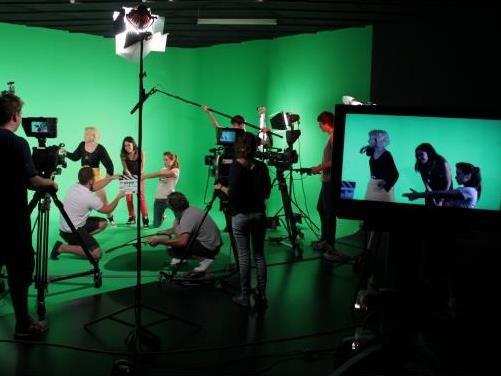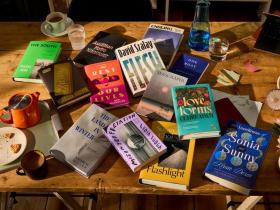Image: supplied.
A career in film and television production has been represented on screen by characters like the jaded Max Bialystock in The Producers, or the well-intentioned Lily Woodward in television series, The Wrong Girl.
But the reality is that most producers in Australia work tirelessly to find funding for projects and to pull productions together on time and on budget. ‘In Australia the buck might stop with the producer, but they are equally part of the team along with everybody else. They are not someone who comes along and waves their wand while everything happens magically behind them. They are hardworking, nose to the grindstone, team players,’ said JMC lecturer Antony Waddington.
Waddington teaches Film and Television production at JMC and has executive produced several documentaries for the ABC, SBS and commercial networks, and recently developed and produced the $15 million independent Australian film The Eye of the Storm (2011). He said a good producer needs both tenacity and patience. ‘It is hard, but if it was easy everyone would do it.’
If you are considering a career as a producer in film and television, it is important to choose a course that will give you relevant and focused business skills such as putting together a production budget and learning how to pitch projects. Waddington recommends choosing a course that also gives you a broad understanding of the creative industries.
Learn more about film and television production at JMC
‘If you learn skills that are going to allow you to enter the creative industries as a whole as opposed to simply saying “I want to produce film and television”, you are going to walk away from a training institution with a worthwhile toolkit,’ he said.
As an important sector within the creative industries, film and television is also an area of future growth.
‘We know the creative industries are exploding in this country. We are net exporters of digital content and when you see people like Google commissioning the Boston consultant group to do studies on Australia as a marketplace and they call it the digital boom, there’s a reason. There’s a reason a conservative government in NSW – whatever you think of politics one way or another – has a creative industries plan as one of its five platforms white papers to inform its policy decision making process. It’s because of the revenue coming in from these areas,’ said Waddington.
‘The old lines between television and cinema, those days are over. The best writers, the best directors, the best performers move between film and television now and there are so many opportunities. Video on demand has opened up a whole new world for production and people are hungry for content.’
Do what you love
While the need for quality content is certainly growing alongside new recognition of the creative industries in policy and government, that doesn’t mean finding work as a producer is necessarily easy. As Waddington said, producers work very hard to secure funding to get their projects off the ground.
His advice is to find out what work is important to you, and then do your best to be able to create that. ‘If what you love is home renovation shows you’ll probably do ok financially – and great, if that’s what you love doing. There’s a market for that, and why not? Or if what you want to do is make a great drama series where you get to see characterisation develop over weeks and months and indeed years, do that.’
‘I think it is important to know where it is you want to work and then find your way into that area.’
The Essential Skills Series is brought to you in partnership with the JMC Academy.





